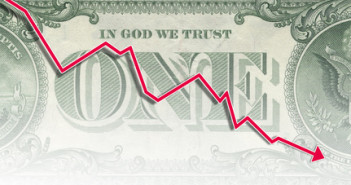The focus for markets this week has been on the FOMC meeting minutes. Overall, GBP/USD rose on the back of these minutes.
Dovish sentiments from Fed members on Tuesday gave a good preview before actual minutes release. Fed officials named a rising dollar, underutilisation of labour resources and the global slowdown as risks to the US outlook, and pledged to keep interest rates low for a ‘considerable time’.
They also stressed any rate hikes – or changes to forward guidance for that matter – would be dependent on a strong US economy. Earlier comments from the Chicago Fed President Charles Evans also cited concerns over inflation levels, and an expectation to not rise to 2% in ‘reasonable time’. All of this hit the dollar hard and GBP/USD surged from a low of 1.6035 to peak to a high of 1.6178 during US trading hours.
By Alex Edwards at UKForex, an international money transfer service
The dollar continued to weaken as the sessions rolled on and GBP/USD eventually traded to a week high of 1.6220.Thursday’s BoE rate decision was uneventful, as rates and QE were left unchanged. It was therefore left to the afternoon’s US Jobs data to provide the days volatility.
For the fourth consecutive week in a row, US initial jobless claims came in better than forecasted at 287K (vs 294K), while continuing jobless claims printed 2.381M vs exp. 2.410M. Immediately after the news, cable fell nearly a cent before levelling off at 1.6120, but continued to fall in Asia to 1.6050.
Meanwhile, the euro continued to trade on the back foot for most of the week – although EUR/USD did get a boost on Wednesday night following the Fed minutes. ECB President Draghi’s gave a speech on Thursday, in which he confirmed that eurozone interest and inflations rates are expected to remain “low for longerâ€.
Speaking in Washington he said “we are accountable to the European people for delivering price stability, which today means lifting inflation from its excessively low levelâ€. This will be difficult, especially as it is becoming harder to convince Germany that printing more money, through full blown quantitative easing, is necessary – ‘harder’ being somewhat of an understatement. Many think this is simply a way of financing governments, with the German Bundesbank President Jens Weidmann expressing this view earlier in the week saying “there is a risk of monetary policy, especially in the euro area, being held hostage by politicsâ€.
Data to watch for next week will be UK CPI and the unemployment rate. With energy prices having fallen, investors are expecting to see a drop in September’s inflation figure, and this might see the 1.60 level in GBP/USD come under threat again. Retail Sales is also due from the States, whilst Fed Chair Yellen and ECB President Draghi are due to speak again.
Further reading:Â Market Movers Episode #19: State of the US job market, FOMC minutes rundown and falling oil



